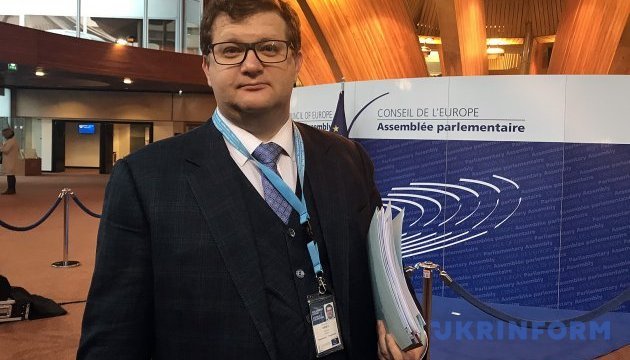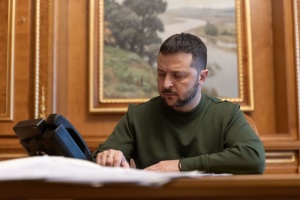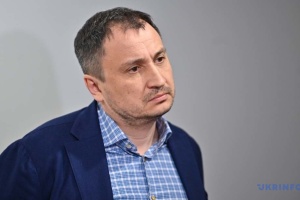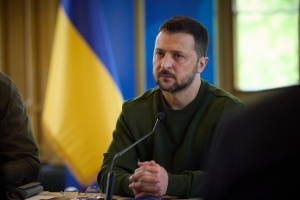
Has the Council of Europe finally reached the Crossroads? Asks senior Ukrainian Deputy Volodymyr Ariev.
“Financial crisis or crisis of values?” This somewhat Shakespearian question applies to the current situation in the Council of Europe, itself created after World War II to protect Europe by defending a triad of principles: democracy, human rights and the rule of law, EU Today reports.
In May, under CoE Secretary General Thorbjorn Jagland, the situation intensified to the level of the existential, ‘to be or not to be’: the question for the CoE now is whether it will be or not be financially blackmailed by the Russian Federation, given that whoever pays the piper calls the tune.
This story began in 2014 when Russia illegally annexed Crimea. In keeping with its Rules and Procedures, the Parliamentary Assembly of the Council of Europe imposed sanctions against the delegation of the Russian Parliament immediately after the Russian Duma voted to annex the Ukrainian peninsula.
In protest, and in a fit of petulance, the Russians left the Assembly to then return at the beginning of 2015 with the expectation of swift revenge.
Not only did the situation not improve – it got worse. Following Russian aggression in Donbas, the Assembly passed a second resolution reaffirming sanctions, including the suspension of the Russian delegation’s voting rights, until such time as the fair demands of PACE were met.
Since that time, the delegation from Moscow has refused to participate in the work of the Assembly and has broken all contacts, including cooperation in frameworks for Monitoring fulfillment of its obligations it undertook when it joined the Council of Europe.
With no legal way out, Russia in 2017 resorted to another breach of its obligations: refusal to pay its contribution to the Council of Europe, (which is 7% of the total CoE budget.)
The only condition the Russian side introduced was to strike out from the Rules and Procedures of PACE the option to sanction delegations making it clear that Russia will continue to ignore PACE resolutions as and when it chooses.
The Council of Europe has found itself in a bind – wether to stand by its principles or to sell out to the whims of the paymaster.
It’s quite obvious. As if a court of law didn’t through its judgements impose conditions on the defendant but quite the contrary. What should be the proper response to such blackmail? A strong body in this situation would keep to its principles and turn to budget cuts rather than submit to blackmail, as was proposed by the United Kingdom. Regrettably, this is not the path chosen by the CoE leadership.
The Secretary General rejected all proposals, including increasing the contributions proportionally of every member state. According to CoE Statutes, any state that fails to pay its contributions to the budget may be suspended after two years of non-payment. The main argument of Jagland for Russia remaining in the CoE is that Russia’s membership allows its population to maintain access to the European Court for Human Rights as a part of CoE.
At the same time the Secretary General’s office neglects to mention two important points: firstly, in contradiction to the European Convention for Human Rights which it voluntarily signed, Russia has adopted a law that honours Russian Constitutional Court decisions over judgments of the ECHR.
Apparently the leaders of the CoE have chosen to accede to Russian blackmail. Yet, members of PACE themselves did not accept this scenario for at least three reasons. First, it is not normal when it is the infringer who dictates the rules to the body responsible for the rule of law. It is inadmissible to meet any Russian demand as long as fair Assembly demands remain ignored.
Secondly, such a change to the Rules and Procedures means limitation of Monitoring procedures that give real power and influence to the Parliamentary Assembly.
Thirdly, paragraph 15 of PACE resolution 2132 adopted in 2016 mentioning the Russian refusal to implement previous Assembly decisions clearly states: ‘only significant and measurable progress towards their implementation can form the basis for the restoration of a fully fledged, mutually respectful dialogue with the Assembly.’
Thus, by accepting Russian demands PACE would go against its own resolution, which would be a negative precedent. !!!!!!
The following developments in PACE were in the tradition of Byzantine politics of hypocrisy whereby true goals are masked behind apparently positive intentions.
Right after the presentation of Russian blackmail, a resolution entitled ‘Call for a Council of Europe summit to reaffirm European unity and to defend and promote democratic security in Europe’ was proposed, and voted on in October 2017.
There was no mention of Russia here whatsoever, but the Ukrainian delegation voted it out, having understood what was meant by calls to ‘harmonise procedures’ and to establish an ad hoc working group. The PACE Bureau established an Ad Hoc Committee, then chaired by PACE President Michele Nicoletti, in order to discuss how to improve the functioning of the Assembly. It held 5 meetings and produced more than 100 pages of proposals in a compendium from different delegations and political groups But finally, Russian demands only were extracted from all data.
In the forthcoming PACE October part session, the draft report is expected to be scheduled to either vote to meet Russian conditions or to save the Council of Europe as a respected and reliable structure that stands strong on its principles.
I have no doubt that the first option would sharply reduce the credibility of the Council of Europe as an authority for human rights defenders and reformers in all member states.
Eventually against the background of a loud corruption scandal in PACE it could trigger a full-scale crisis in the organization, not only a financial crisis but a crisis of values and of trust as well.
Against this background it seems very strange that the Council of Europe board and the Assembly Bureau in particular are making all efforts to return Russia while literally doing nothing to compel Russia to meet the requirements of the Council of Europe.
Is accepting Russian demands worth putting into question, “to be or not to be”, the integrity of an organisation that successfully existed for 40 years before the Russian Federation became a part of it? It is for the CoE itself to answer this question and thereby define its own future. The price of the wrong answer in terms of human rights, rule of law and democracy in Europe cannot be overestimated, lest something like a Shakespearian drama, or tragedy, wait for Council of Europe ahead.




